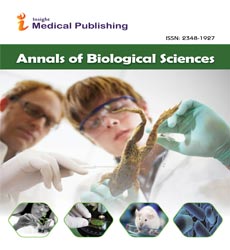ISSN : 2348-1927
Annals of Biological Sciences
The Traditional Wisdom for Climate-Resilient Agriculture in Sri Lanka
Kodi Gaddara*
Department of Agricultural Systems, Rajarata University of Sri Lanka, Anuradhapura, Sri Lanka
- *Corresponding Author:
- Kodi Gaddara
Department of Agricultural Systems,
Rajarata University of Sri Lanka, Anuradhapura,
Sri Lanka,
E-mail: gaddara@gmail.com
Received date: January 10, 2024, Manuscript No. ABS-24-18787; Editor assigned date: January 12, 2024, PreQC No. ABS-24-18787 (PQ); Reviewed date: January 27, 2024, QC No. ABS-24-18787; Revised date: February 05, 2024, Manuscript No. ABS-24-18787 (R); Published date: February 12, 2024, DOI: 10.36648/2348-1927.12.1.123
Citation: Gaddara K (2024) The Traditional Wisdom for Climate-Resilient Agriculture in Sri Lanka. Ann Bio Sci Vol.12 No.1:123.
Description
Agriculture stands at the forefront of both witnessing and contributing to climate change. In Sri Lanka, where agricultural practices are deeply intertwined with the country's cultural, ecological, and socio-economic fabric, building climate resilience in the food production system is imperative. However, the current approach of recommending a common package of climate-smart agricultural practices for the entire country overlooks the diverse realities across regions. To address this gap, a comprehensive literature review was conducted, analyzing 36 scientific communications spanning over 13 years. Additionally, insights were drawn from country papers and publications from esteemed organizations like the UN, ADB, FAO, and IPCC. The review aimed to explore the relationship between agriculture and climate change, assess the climateresilient potential of traditional agricultural practices, analyze the status of climate resilience in the existing food system, and propose a location-specific framework for enhancing climate resilience in Sri Lanka's agricultural systems.
Agricultural practices
Traditional agricultural practices in Sri Lanka, deeply rooted in cultural, ecological, and socio-economic contexts, hold significant promise for building climate resilience. Practices such as rainwater harvesting, shared cultivation, agro-forestry, and the use of resistant crop varieties have demonstrated effectiveness in adapting to climatic variability. These practices, tailored to the specific conditions of each region, offer valuable insights for modern agricultural strategies. However, modern agricultural practices also play a crucial role in enhancing climate resilience. The establishment of micro-irrigation systems, utilization of early warning systems, development of highyielding resistant crop varieties, and crop-livestock integration are recommended interventions. Interestingly, many of these modern practices have roots in traditional agricultural systems, indicating the enduring relevance of indigenous knowledge. Integration of traditional agricultural wisdom into modern practices presents a holistic approach to building climate resilience. By leveraging the knowledge accumulated over generations, Sri Lanka can develop region-specific sustainable agricultural practices that restore the resilience of agriculture. This integration aligns with the sustainable development goals of climate action, zero hunger, and no poverty, directly contributing to the country's socio-economic development. In conclusion, the proposed framework emphasizes the importance of considering the diverse cultural, ecological, and socio-economic contexts of Sri Lanka's regions in agricultural planning. By blending traditional wisdom with modern innovations, the country can forge resilient food systems capable of withstanding the impacts of climate change.
Climatic conditions
This holistic approach not only safeguards livelihoods but also ensures food security for future generations. Furthermore, the literature review highlights the need for tailored interventions that account for the unique characteristics of each region in Sri Lanka. For instance, the Batticaloa farming system serves as a case study, illustrating the importance of location-specific approaches in building climate resilience. By understanding the local context and leveraging traditional agricultural practices, such as rainwater harvesting and shared cultivation, communities can adapt to changing climatic conditions and mitigate risks associated with climate variability. Importantly, the proposed framework emphasizes the importance of collaboration between stakeholders, including farmers, policymakers, researchers, and NGOs. By fostering partnerships and knowledge exchange, it becomes possible to co-create solutions that address the complex challenges facing Sri Lanka's agricultural sector. Overall, the integration of traditional and modern agricultural practices offers a promising pathway towards building climate-resilient food systems in Sri Lanka. By harnessing the wisdom of the past and embracing innovative approaches, the country can pave the way towards sustainable agriculture that ensures food security and enhances the wellbeing of its population.
Open Access Journals
- Aquaculture & Veterinary Science
- Chemistry & Chemical Sciences
- Clinical Sciences
- Engineering
- General Science
- Genetics & Molecular Biology
- Health Care & Nursing
- Immunology & Microbiology
- Materials Science
- Mathematics & Physics
- Medical Sciences
- Neurology & Psychiatry
- Oncology & Cancer Science
- Pharmaceutical Sciences
